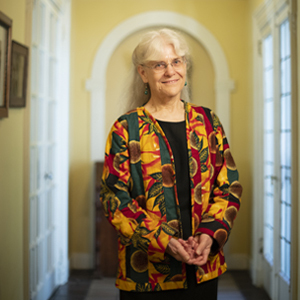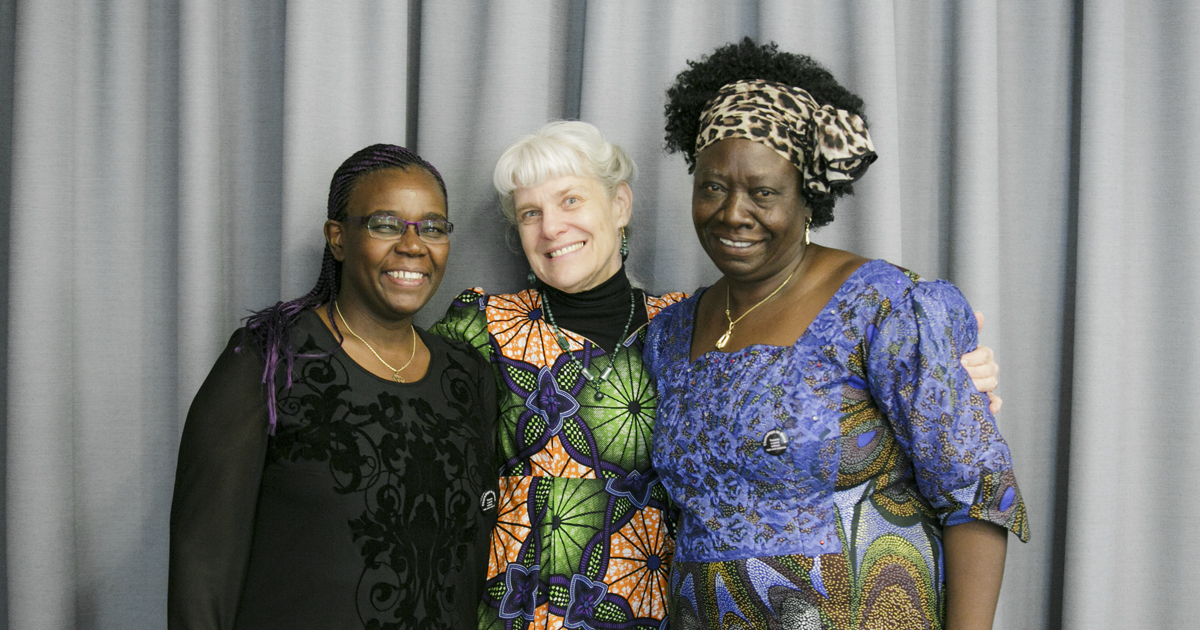Professor Elsie McKee Retires
May 18, 2021 | Alumni, Faculty, Featured, History & Ecumenics, Public

Elsie Tshimunyi McKee, Archibald Alexander Professor of Reformation Studies and the History of Worship, is retiring after 29 years of teaching at Princeton Theological Seminary.
First on the retirement docket for McKee is relocating from her Princeton Seminary residence to South Jersey to be near her children. “We will cover this with a veil of prayer,” she says with a laugh, “because it’s going to take that to get me through it all.”
On a more serious note, McKee is concentrating on her book collaboration, due out this summer.
Cradling Abundance: One African Christian’s Story of Empowering Women and Fighting Systemic Poverty (IVP Academic) by “Maman” Monique Misenga Ngoie Mukuna is the result of thousands of hours of conversations in French and Tshiluba that McKee translated and edited. The book recounts the experiences of Maman Monique, a lay leader in the Presbyterian Church in Congo, and includes historical background, cultural notes, and a study guide written by McKee.
“This is Maman Monique’s story, which I have taped over 10 years,” says McKee. “It’s a marvelous story of African Christian women,” she adds, “a rich story of a women’s movement.”
McKee says the book represents a body of work that for her is “coming full circle.” McKee’s Congolese roots date to 1911, when her grandparents moved there as Presbyterian missionaries. McKee was born, baptized, and lived there until coming to the United States for college.
“For me, this is the world of the church as I grew up knowing it. A church that is another color. Another language. Another culture,” McKee says. “This has shaped my whole sense of the world,” she says.

Elsie McKee (center) with Dr. Nyambura Njoroge (left) and Maman Monique (right)
Over the years, McKee’s scholarly work on the history and theology of the Reformation has evolved to include the history of worship, spirituality, and women in the church.
McKee’s career at Princeton Seminary was no accident. She was in the Speer Library finishing her doctoral work when a visitor from the Congo urged her to return to the Seminary and teach. “I promised I would,” McKee says. “I considered that an obligation.”
She fulfilled that vow. “I’ve always used illustrations from Congo in my classes, but I was able to use my work with Maman Monique as a launching pad for a course on women in African Christianity.”
McKee hopes most to be remembered for being a bridge between Africa and North America for students and faculty members at Princeton Seminary.
She also believes she’s made a unique contribution by “humanizing” Reformation theologian John Calvin through her teaching. “I have changed some ways that people will look at Calvin by giving a broader or more rounded picture of him as the pastoral Calvin,” she says.
“To celebrate only her impressive scholarly talents misses the mark,” recalls Gordon A. Govens, PhD ’18, ThM ’11, MDiv ’10, “like those who ignore the extent to which John Calvin’s ministerial work informed his theology,” he says. “Like Calvin, Dr. McKee has a pastoral heart,” says Govens, president of the Presbyterian Pan American School. “I am who I am as a person, as a history scholar, and as a Christian because of Dr. McKee,” he continues. “She is a devoted child of God who models Christian piety.”





